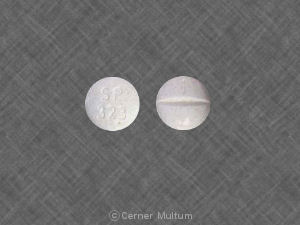Niravam Interactions
There are 565 drugs known to interact with Niravam (alprazolam), along with 9 disease interactions, and 2 alcohol/food interactions. Of the total drug interactions, 55 are major, 469 are moderate, and 41 are minor.
- View all 565 medications that may interact with Niravam
- View Niravam alcohol/food interactions (2)
- View Niravam disease interactions (9)
Most frequently checked interactions
View interaction reports for Niravam (alprazolam) and the medicines listed below.
- Abilify (aripiprazole)
- acetaminophen
- Adderall (amphetamine / dextroamphetamine)
- Adderall XR (amphetamine / dextroamphetamine)
- Ambien (zolpidem)
- Ambien CR (zolpidem)
- amlodipine
- Ativan (lorazepam)
- baclofen
- bupropion
- Celebrex (celecoxib)
- clonazepam
- Cymbalta (duloxetine)
- Deplin (l-methylfolate)
- Flonase (fluticasone nasal)
- gabapentin
- Klonopin (clonazepam)
- Lamictal (lamotrigine)
- levothyroxine
- Lexapro (escitalopram)
- omeprazole
- pantoprazole
- ProAir HFA (albuterol)
- Seroquel (quetiapine)
- Singulair (montelukast)
- tramadol
- trazodone
- Vyvanse (lisdexamfetamine)
- Wellbutrin XL (bupropion)
- zolpidem
Niravam alcohol/food interactions
There are 2 alcohol/food interactions with Niravam (alprazolam).
Niravam disease interactions
There are 9 disease interactions with Niravam (alprazolam) which include:
- acute alcohol intoxication
- closed-angle glaucoma
- drug dependence
- renal/liver disease
- respiratory depression
- seizures
- depression
- obesity
- paradoxical reactions
More about Niravam (alprazolam)
- Niravam consumer information
- Compare alternatives
- Reviews (13)
- Drug images
- Latest FDA alerts (3)
- Side effects
- Dosage information
- During pregnancy
- Generic availability
- FDA approval history
- Drug class: benzodiazepines
- Breastfeeding
Related treatment guides
Drug Interaction Classification
| Highly clinically significant. Avoid combinations; the risk of the interaction outweighs the benefit. | |
| Moderately clinically significant. Usually avoid combinations; use it only under special circumstances. | |
| Minimally clinically significant. Minimize risk; assess risk and consider an alternative drug, take steps to circumvent the interaction risk and/or institute a monitoring plan. | |
| No interaction information available. |
See also:
Further information
Always consult your healthcare provider to ensure the information displayed on this page applies to your personal circumstances.


